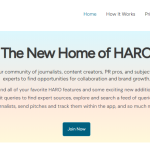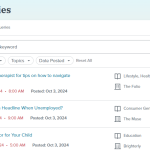When it comes to boosting your website’s search engine rankings, link building plays a crucial role. But not all link building strategies are created equal. You’ve probably heard the terms “white hat” and “black hat” thrown around, but what do they really mean? These labels refer to different approaches, and understanding the differences can make or break your SEO success.
White hat link building focuses on ethical practices that align with search engine guidelines. These techniques aim to improve your site’s rankings organically by creating valuable content and earning backlinks from credible sources. On the flip side, black hat link building relies on manipulative tactics, often bending or outright violating the rules set by Google. While black hat methods might deliver quick results, they come with significant risks that could hurt your website’s long-term performance.
So, which should you use? To answer that, we’ll first dive into the ethical practices behind white hat SEO and then look at the dangerous allure of black hat techniques.
Ethical Link Building Techniques (White Hat)
White hat SEO isn’t about cutting corners; it’s about playing the long game. Think of it as a marathon, not a sprint. These strategies focus on building a solid foundation that will continue to benefit your site over time. Let’s look at some of the most reliable and ethical methods.
Guest Blogging
This is one of the most popular white hat strategies, and for good reason. By contributing high-quality articles to reputable websites, you can earn valuable backlinks. These links not only improve your site’s authority but also introduce your content to a wider audience. For example, writing a guest post on an industry-leading site can lead to both a backlink and new visitors who trust the site you’re featured on.
Broken Link Building
Here’s where you turn someone else’s bad luck into your gain. Broken links are links on websites that no longer work. You can reach out to site owners and offer them a solution—your content to replace that broken link. It’s a win-win situation: they fix their broken link, and you earn a backlink.
HARO (Help a Reporter Out)
Another ethical approach involves HARO, a platform that connects journalists with expert sources. By providing insights to reporters, you can gain authoritative backlinks from top-tier media outlets. This approach isn’t just about the links though—it also helps build your brand’s credibility and visibility in the market.
Infographic Outreach
If you’re sitting on some great data or research, turn it into an eye-catching infographic. These are easy to share and often get picked up by other websites, earning you organic backlinks. For instance, if you publish an infographic on “2024 SEO trends,” other websites in your niche might link to it, driving both traffic and authority.
Risks and Rewards of Black Hat Link Building
Black hat SEO might seem tempting—after all, who doesn’t want fast results?
But, like trying to cheat on a test, you might get caught, and the penalties are harsh. Google is constantly updating its algorithms to spot and punish websites using these manipulative tactics.
Let’s break down some common black hat techniques and the risks involved.
PBNs (Private Blog Networks)
A PBN is essentially a group of websites that link back to your main site in an attempt to manipulate rankings. While PBNs might bring short-term gains, Google has become increasingly adept at spotting them. If your site gets flagged, expect penalties ranging from loss of rankings to being completely de-indexed.
Link Farms and Paid Links
Another black hat tactic involves buying links or getting backlinks from link farms—websites created solely to provide backlinks. Sure, it’s easy to pay for a few hundred links, but search engines are smart. Once they identify these links as manipulative, your rankings will nosedive, and it can be hard to recover.
Cloaking and Keyword Stuffing
This is where you present different content to search engines than what’s shown to users. Keyword stuffing, meanwhile, overloads your pages with search terms to trick search engines into thinking your content is more relevant. Both of these tactics are big red flags, and search engines penalize sites that use them. It’s not worth the risk.
In the short term, these techniques might seem like a quick fix to rank higher. But when Google catches up—and it will—you could see your traffic and rankings disappear overnight.
How to Stay on Google’s Good Side with White Hat Links
So, how do you ensure you’re playing by the rules and staying on Google’s good side? The key is consistency and transparency. Ethical link-building is all about adding value—not just for yourself, but for the audience and the websites you engage with.
Focus on High-Quality Content
It all starts with content. If your content is valuable, others will want to link to it naturally. Whether you’re creating blog posts, infographics, or videos, make sure it’s something people find useful. For instance, a well-researched article on SEO trends will attract organic backlinks because it offers something of value.
Build Relationships in Your Niche
It’s not just about links, it’s about people. Reach out to influencers, bloggers, and industry leaders. Offer them something valuable, like a guest post or collaborative content. These relationships will open the door to organic link-building opportunities that benefit both parties.
Diversify Your Backlink Portfolio
Avoid putting all your eggs in one basket. Your backlinks should come from a variety of reputable sources. Whether it’s blogs, news outlets, or industry directories, diversity helps build a more natural-looking backlink profile that search engines love.
Monitor Your Backlinks
Once you’ve built those links, keep an eye on them. Use tools like Google Search Console or Ahrefs to monitor the health of your backlinks. If you notice any low-quality or toxic links, disavow them to protect your site from penalties.
The Future of Ethical Link Building Strategies
As search engines evolve, so too must your link-building strategies. What works today may not work tomorrow, especially as AI and machine learning continue to shape the SEO landscape.
The Role of AI in SEO
Search engines are becoming more sophisticated at detecting manipulative tactics. Google’s AI is getting better at distinguishing between genuine, valuable content and spammy or unnatural links. This means white hat techniques are more important than ever because AI will reward ethical practices.
The Rise of User Experience as a Ranking Factor
Google increasingly focuses on providing users with the best possible experience. Sites that load quickly, offer helpful information, and provide a smooth user journey are being rewarded with higher rankings. This shift places even more importance on quality content and ethical link-building practices.
Sustainability of White Hat SEO
Ultimately, white hat SEO is the only sustainable option. While black hat tactics might offer quick gains, they’re not built to last. Ethical link building, on the other hand, not only improves your site’s rankings but also helps build a brand people trust. The future belongs to businesses that invest in relationships, content, and long-term growth.
In the world of SEO, white hat link building is the clear winner for long-term success. It takes time, effort, and patience, but the rewards are worth it. Black hat tactics might offer a shortcut, but the risks far outweigh the benefits. By focusing on ethical, user-centered strategies, you’ll not only avoid penalties but also build a lasting online presence that stands the test of time.
Now, which approach will you choose for your business?
 logo
logo

